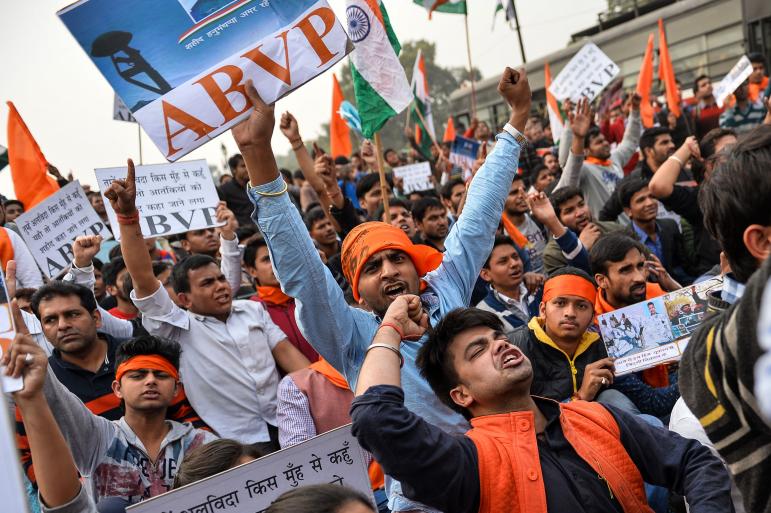
Nearly two years ago, when Indian voters swept Narendra Modi into power, it was all supposed to be about development.![]()
Modi, the former Gujarati first minister, led the Bharatiya Janata Party (the BJP, भारतीय जनता पार्टी) to a dizzying landslide on the promise that he would be the energetic 21st century CEO of India, Inc. He repeatedly emphasized that his administration would prioritize toilets over temples, that a Modi-led government would be far more interested in promoting economic growth, human development and policy reform than in policing the religious norms of the Hindu nationalists so influential in the BJP.
But by the standards of Modi’s own 2014 campaign, he’s failing.
His efforts to enact business-friendly land reform (essentially, giving the Indian government stronger rights to eminent domain) was curtailed by farmers, Rahul Gandhi and even opponents to Modi’s own right flank.
An attempt to enact a Goods and Services Tax bill, which would harmonize a single tax rate across India’s state borders, is also flailing (for now) in the upper house of the Indian parliament. Officially, the economy grew in 2015 by 7.5%, but there’s reason to doubt those numbers.
That makes the latest showdown between Modi and student protesters even more damning — a prosecution of student leader Kanhaiya Kumar and five other students at Delhi’s prestigious Jawaharlal Nehru University for ‘sedition’ after the students led a series of protests against over the 2013 execution of a Kashmiri man charged with a 2001 attack on the Indian parliament. Continue reading JNU protests highlight failures of India’s Modi government